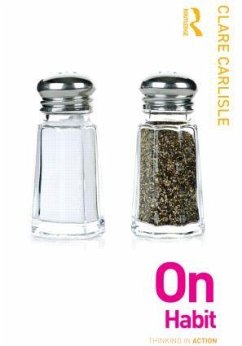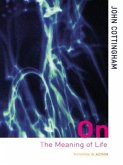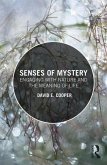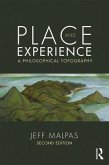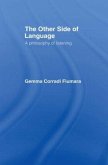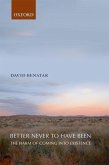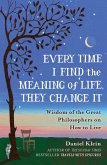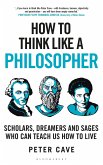For Aristotle, excellence is not an act but a habit, and Hume regards habit as 'the great guide of life'. However, for Proust habit is problematic: 'if habit is a second nature, it prevents us from knowing our first.'
What is habit? Do habits turn us into machines or free us to do more creative things? Should religious faith be habitual? Does habit help or hinder the practice of philosophy? Why do Luther, Spinoza, Kant, Kierkegaard and Bergson all criticise habit? If habit is both a blessing and a curse, how can we live well in our habits?
In this thought-provoking book Clare Carlisle examines habit from a philosophical standpoint. Beginning with a lucid appraisal of habit's philosophical history she suggests that both receptivity and resistance to change are basic principles of habit-formation. Carlisle shows how the philosophy of habit not only anticipates the discoveries of recent neuroscience but illuminates their ethical significance. She asks whether habitis a reliable form of knowledge by examining the contrasting interpretations of habitual thinking offered by Spinoza and Hume. She then turns to the role of habit in the good life, tracing Aristotle's legacy through the ideas of Joseph Butler, Hegel, and Félix Ravaisson, and assessing the ambivalent attitudes to habit expressed by Nietzsche and Proust.
She argues that a distinction between habit and practice helps to clarify this ambivalence, particularly in the context of habit and religion, where she examines both the theology of habit and the repetitions of religious life. She concludes by considering how philosophy itself is a practice of learning to live well with habit.
What is habit? Do habits turn us into machines or free us to do more creative things? Should religious faith be habitual? Does habit help or hinder the practice of philosophy? Why do Luther, Spinoza, Kant, Kierkegaard and Bergson all criticise habit? If habit is both a blessing and a curse, how can we live well in our habits?
In this thought-provoking book Clare Carlisle examines habit from a philosophical standpoint. Beginning with a lucid appraisal of habit's philosophical history she suggests that both receptivity and resistance to change are basic principles of habit-formation. Carlisle shows how the philosophy of habit not only anticipates the discoveries of recent neuroscience but illuminates their ethical significance. She asks whether habitis a reliable form of knowledge by examining the contrasting interpretations of habitual thinking offered by Spinoza and Hume. She then turns to the role of habit in the good life, tracing Aristotle's legacy through the ideas of Joseph Butler, Hegel, and Félix Ravaisson, and assessing the ambivalent attitudes to habit expressed by Nietzsche and Proust.
She argues that a distinction between habit and practice helps to clarify this ambivalence, particularly in the context of habit and religion, where she examines both the theology of habit and the repetitions of religious life. She concludes by considering how philosophy itself is a practice of learning to live well with habit.
"Clare Carlisle's On Habit is a rich and stimulating book on a topic that, despite having long been a key feature of western thinking, has drifted from the forefront of philosophical debate. This text serves as a timely reminder of the remarkably broad range of philosophical issues that reflection on habit covers. ... Carlisle does an impressive job of presenting a wide range of broad philosophical issues, including very difficult epistemological and ontological problems, in a way that will be stimulating for both specialists and non-specialists alike." - Jeremy William Dunham, British Journal for the History of Philosophy
A CHOICE Outstanding Academic Title, 2014
"Carlisle offers a smart, well-written introduction to habit and the role it plays in people's lives. She provides a broad, far-reaching analysis of the role that habit has played in major philosophical works, ranging from ancient Greece to the present; this analysis is both rigorous and accessible to nonacademic readers. ... Carlisle's treatment of the relationship of habit to the topics of freedom of the will and morality is impressive. ... She is careful to address concerns about the prima facie incompatibility of free will and habit throughout the book but never gets bogged down in the complicated, highly divisive nature of the free will problem. Summing Up: Highly recommended." - William Simkulet, CHOICE
"Remarkably rich in reference, erudite but never ponderous, this finely crafted study brings out the philosophical importance of a hitherto often neglected topic. Elegantly and accessibly written, it has much to offer specialists and general readers alike." - John Cottingham, Heythrop College London and University of Reading, UK
"Immensely readable, and offering a myriad of helpful analogies and applications, On Habit is a guide to reflection on some of the defining puzzles of being human, bringing us face to face with fundamental issues relating to identity, morality, and religion. This is not the kind of popular philosophy that does our thinking for us and provides us with ready-made answers, but an invitation to serious thinking about who we really are." - George Pattison, University of Glasgow, UK
A CHOICE Outstanding Academic Title, 2014
"Carlisle offers a smart, well-written introduction to habit and the role it plays in people's lives. She provides a broad, far-reaching analysis of the role that habit has played in major philosophical works, ranging from ancient Greece to the present; this analysis is both rigorous and accessible to nonacademic readers. ... Carlisle's treatment of the relationship of habit to the topics of freedom of the will and morality is impressive. ... She is careful to address concerns about the prima facie incompatibility of free will and habit throughout the book but never gets bogged down in the complicated, highly divisive nature of the free will problem. Summing Up: Highly recommended." - William Simkulet, CHOICE
"Remarkably rich in reference, erudite but never ponderous, this finely crafted study brings out the philosophical importance of a hitherto often neglected topic. Elegantly and accessibly written, it has much to offer specialists and general readers alike." - John Cottingham, Heythrop College London and University of Reading, UK
"Immensely readable, and offering a myriad of helpful analogies and applications, On Habit is a guide to reflection on some of the defining puzzles of being human, bringing us face to face with fundamental issues relating to identity, morality, and religion. This is not the kind of popular philosophy that does our thinking for us and provides us with ready-made answers, but an invitation to serious thinking about who we really are." - George Pattison, University of Glasgow, UK

